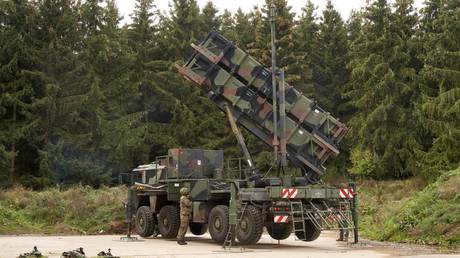How to Become a Forklift Driver: Essential Skills and Training Guide

Key Takeaways

- Growing Career Opportunity: Demand for skilled forklift drivers is on the rise as e-commerce and logistics industries expand, offering stable job prospects across various sectors.
- Essential Qualifications: To become a forklift driver, you must be at least 18 years old and complete an OSHA-approved training and certification course to ensure safety and compliance.
- Diverse Training Options: Forklift training is available through in-person classes, online courses, or employer-provided training, allowing you to choose the best fit for your schedule and learning style.
- Skill Development: Key skills for forklift drivers include technical operation, safety awareness, load management, and strong communication abilities, all of which enhance workplace efficiency and safety.
- Promise of Career Advancement: The job outlook remains favorable with projected employment growth, and obtaining advanced certifications can lead to specialized roles and increased demand in the field.
If you’re looking for a rewarding career that offers both stability and growth, becoming a forklift driver might be the perfect fit for you. With the rise of e-commerce and logistics, skilled forklift operators are in high demand across various industries. This role not only involves operating heavy machinery but also requires a keen sense of safety and efficiency.
Getting started on this path is easier than you might think. With the right training and certification, you can quickly gain the skills needed to excel in this field. Whether you’re new to the workforce or seeking a career change, understanding the steps to become a forklift driver will set you on the right track toward a fulfilling job.
Overview of Forklift Driving

Forklift driving offers a stable career path that directly supports various industries. You can find numerous job opportunities as companies increasingly rely on efficient material handling.
Importance of Forklift Operators
Forklift operators play a crucial role in maintaining safety and efficiency in logistics and warehousing. You ensure products move smoothly through operations, minimizing workplace accidents and operational delays. Skilled operators help maintain inventory accuracy, which directly affects customer satisfaction and business performance. By prioritizing safety training, you contribute to a culture of responsibility and compliance in your workplace.
Industries Employing Forklift Drivers
Various industries hire forklift drivers, including:
- Warehousing: Warehouses depend on operators for loading, unloading, and storing goods.
- Manufacturing: In manufacturing, you manage raw materials and finished products.
- Construction: Construction sites utilize forklift drivers to transport heavy materials and equipment.
- Retail: Retail environments require operators to handle inventory and deliveries efficiently.
- E-commerce: E-commerce businesses benefit from skilled drivers to support fast-paced operations and fulfill orders.
You can explore job opportunities across these industries, enhancing your career prospects while contributing effectively to their success.
Required Qualifications

To become a forklift driver, you must meet specific qualifications, including age, education, and certification requirements.
Minimum Age and Education
You must be at least 18 years old to operate a forklift, as mandated by the Fair Labor Standards Act (FLSA) and OSHA regulations. While a high school diploma or equivalent isn’t always necessary, many employers prefer candidates holding this credential. Attaining this educational milestone can enhance your chances of securing a position in industries where forklift operation is critical, such as warehousing and manufacturing.
Necessary Certifications
You need to complete an OSHA-approved forklift operator certification course. This training can occur through various providers, including employers, forklift dealers, local community colleges, or online courses. The training includes formal instruction covering essential topics such as safety procedures, OSHA rules, driving techniques, and forklift maintenance. Acquiring this certification demonstrates your commitment to safety and professionalism, which can be a valuable asset in a competitive job market. By investing in your training, you reinforce your qualifications and appeal to small businesses seeking skilled forklift operators.
Forklift Training Programs

Forklift training programs ensure you acquire the necessary skills and credentials for safe and efficient operation. These programs vary in structure and content, catering to different needs within the logistics and warehouse sectors.
Types of Training Available
- In-Person Training: Attend a structured classroom setting combined with hands-on experience. This approach often provides immediate feedback from instructors and the opportunity to practice on actual equipment.
- Online Courses: Complete training at your own pace through web-based courses. Online options are convenient and accessible, making them suitable for busy schedules or remote locations.
- Employer-Provided Training: Some companies offer on-site training programs tailored to specific operational needs. This type of training often incorporates company policies and procedures, enhancing safety compliance within your business.
Choosing the Right Training Program
- Identify Your Needs: Assess the type of forklift you’ll operate. OSHA outlines seven classes; make sure your training aligns with these classifications.
- Research Accreditation: Opt for OSHA-approved programs, which meet established standards and help ensure you receive quality instruction.
- Evaluate Course Format: Determine if in-person or online training fits your learning style and schedule. Consider costs too, as some programs may offer financial incentives or group discounts for businesses.
- Check Reviews and Recommendations: Look for testimonials from previous participants to gauge the effectiveness of the training program. This can provide insights into the program’s quality and relevance to your specific industry.
By selecting the appropriate forklift training, you enhance your skills, which supports a safe and productive workplace.
Skills Needed for Forklift Drivers

Forklift drivers require a mix of technical and soft skills for safe and efficient operation in various industries. Understanding these skills can enhance your qualifications and boost your career prospects.
Essential Technical Skills
- Forklift Operation: Mastering the mechanics of operating a forklift is crucial. Each class of forklift has unique features and handling characteristics, making familiarity with equipment essential.
- Safety Procedures: Knowing OSHA regulations ensures a safe working environment. Forklift drivers play a key role in preventing accidents and promoting workplace safety.
- Maintenance Knowledge: Basic understanding of forklift maintenance helps in identifying issues early, which can minimize downtime and repair costs.
- Load Management: Learning how to properly assess weight limits and balance loads prevents tipping and damage, promoting safe material handling.
- Navigation Skills: Being adept at maneuvering forklifts in tight spaces and crowded areas increases operational efficiency and reduces the risk of collisions.
Soft Skills for Effective Operation
- Communication: Clear communication with team members and supervisors enhances coordination and helps maintain safety protocols.
- Problem-Solving: Quick thinking in managing unexpected situations or equipment failures is vital for maintaining a smooth workflow.
- Attention to Detail: Noticing small details during operation and inspections can prevent accidents and ensure compliance with safety regulations.
- Time Management: Efficiently managing time improves productivity and helps meet logistical deadlines, particularly in fast-paced environments.
- Teamwork: Collaborating effectively with colleagues fosters a supportive workplace culture and contributes to overall success.
Both technical and soft skills are critical for forklift drivers, enhancing safety and productivity in your business environment.
Job Outlook and Career Advancement

The job outlook for forklift drivers remains promising, driven by demand across various sectors. As industries like warehousing, manufacturing, and construction expand, skilled forklift operators find numerous employment opportunities. The U.S. Bureau of Labor Statistics projects a 4% growth in forklift operator employment from 2020 to 2030, which surpasses the average for all occupations. This growth aligns with the surge in e-commerce and logistics, emphasizing the need for efficient product movement within warehouses.
Employment Opportunities
Forklift drivers play a vital role in small businesses, particularly those focusing on distribution and inventory management. You can explore positions with local warehouses, retail establishments, or manufacturing facilities. The availability of job roles is strong, especially as small businesses seek to optimize operations. Positions often offer competitive wages, and experience can lead to supervisory roles or specialized positions within the logistics field.
Advanced Certifications and Specializations
You can enhance your career prospects by pursuing advanced certifications and specializations. Certifications such as those offered by the National Safety Council or the National Commission for the Certification of Crane Operators provide additional qualifications. Specializing in specific types of forklifts or attachments can also lead to increased demand for your skills. Advanced certifications not only boost your resume but also signal a commitment to safety and professionalism, which is increasingly valued by employers in competitive markets.
Conclusion

Becoming a forklift driver can open doors to a rewarding career in various industries. With the right training and certification, you can position yourself as a skilled operator in high demand. Prioritizing safety and efficiency not only enhances your job prospects but also contributes to a positive work environment.
As you embark on this journey, remember to focus on developing both technical and soft skills. These attributes will set you apart in a competitive job market. With a promising job outlook and opportunities for advancement, a career as a forklift driver can provide you with stability and growth. Embrace the path ahead and take the first step toward a fulfilling career today.
Frequently Asked Questions

What are the benefits of becoming a forklift driver?
Becoming a forklift driver offers various benefits, including job stability, competitive wages, and opportunities for advancement. With the rise of e-commerce and logistics, skilled operators are in high demand. Additionally, this role provides essential skills and experience that are valuable across multiple industries, such as warehousing, manufacturing, and retail.
What qualifications do I need to become a forklift driver?
To become a forklift driver, you must be at least 18 years old and complete an OSHA-approved certification course. While a high school diploma is not always mandatory, it is often preferred by employers. This training ensures you are knowledgeable about safety procedures and operational techniques.
What type of training is available for forklift drivers?
Training for forklift drivers can include in-person classes, online courses, or employer-provided training programs. Each option caters to different learning preferences and schedules. It’s essential to choose a training program that is accredited and fits your needs to ensure comprehensive skill development.
What skills are essential for forklift drivers?
Forklift drivers should possess both technical skills, such as safe operation and load management, and soft skills like communication and teamwork. Mastering these skills improves job performance and ensures workplace safety, making drivers more valuable to employers.
What is the job outlook for forklift drivers?
The job outlook for forklift drivers is promising, with a projected growth of 4% from 2020 to 2030. This demand is driven by sectors like warehousing and manufacturing, offering competitive wages and opportunities for career advancement into supervisory or specialized roles.
How does safety training impact a forklift driver’s career?
Safety training is crucial for forklift drivers as it enhances operational skills and reduces workplace accidents. By prioritizing safety, drivers contribute to a responsible work culture, which not only improves their job prospects but also supports employer success, showcasing professionalism in the field.
Image Via Envato
This article, "How to Become a Forklift Driver: Essential Skills and Training Guide" was first published on Small Business Trends
What's Your Reaction?
 Like
0
Like
0
 Dislike
0
Dislike
0
 Love
0
Love
0
 Funny
0
Funny
0
 Angry
0
Angry
0
 Sad
0
Sad
0
 Wow
0
Wow
0
































































































